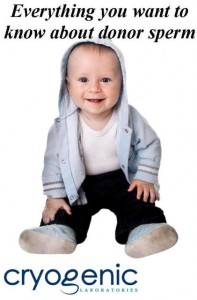Blog written by Michelle Ottey, PhD, Laboratory Director
One of the questions I am asked most frequently is, “Is the donor sperm safe?” Women want to ensure that the sperm sample being used for their insemination is safe and will not put them or their potential child at risk.
Donor sperm purchased from a sperm bank has been tested for infectious diseases, and the donors have had some level of genetic testing. Sperm banks are regulated by the FDA which requires the following testing:
- Serological testing: HIV-1, 2, Hepatitis B surface antigen and core antibody, Hepatitis C antibody, Cytomegalovirus (CMV) antibody, Syphilis (RPR), and HTLV I/II antibody
- Polymerase Chain Reaction (PCR) testing: HIV 1, HCV, Chlamydia, and Gonococcus
All sperm banks must do that basic level of testing to maintain their FDA certification. Some of us choose to go above and beyond this basic level of testing and provide additional PCR testing for HIV2, HTLV I/II, CMV, HSV 1 and 2, and HPV.
Donor sperm is required to be placed in quarantine, not released, until there has been post testing. Every sample must remain in quarantine for a minimum of 180 days. The testing of the sperm donors after the quarantine period must be non-reactive to release the donor sperm from quarantine.
 Along with the actual testing, sperm donors undergo physical examinations to ensure they do not exhibit any symptoms of infectious disease, as well as frequent screening questionnaires about their general health and well-being. Donors are very well looked after while they are actively donating in the sperm donor program.
Along with the actual testing, sperm donors undergo physical examinations to ensure they do not exhibit any symptoms of infectious disease, as well as frequent screening questionnaires about their general health and well-being. Donors are very well looked after while they are actively donating in the sperm donor program.
The goal of all sperm banks is to provide safe donor sperm for their recipients.


